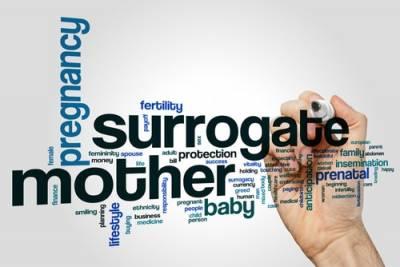Recent Blog Posts
Factors to Consider Regarding a Parental Relocation
Posted on March 15, 2018 in Parental Relocation
 In today’s world, it is not uncommon for a person to seek a fresh start by moving to a new city—sometimes even across the country. This may be particularly appealing after a divorce, as a new beginning may be cathartic in many ways. While the average American has the freedom to move wherever he or she wants at any time, such is not always the case for a divorced parent who shares parenting time of a child with a former spouse.
In today’s world, it is not uncommon for a person to seek a fresh start by moving to a new city—sometimes even across the country. This may be particularly appealing after a divorce, as a new beginning may be cathartic in many ways. While the average American has the freedom to move wherever he or she wants at any time, such is not always the case for a divorced parent who shares parenting time of a child with a former spouse.
Rules for Relocating
The state of Illinois has established laws designed to help keep both parents active in the life of their child, even after a divorce. Regarding moving to a new city or state, Illinois law is clear. A parent with at least half of the parenting time of a child may only move with the child within a certain radius of his or her current home before the move is considered a “relocation.” A relocation requires the consent of the other parent or the approval of the court.
Continue Reading ››
Talking to Your Young Children About Divorce
Posted on March 09, 2018 in Divorce
 If you are a parent of young children and you are getting divorced, you will undoubtedly have questions about how your divorce will affect your kids. While most children are eventually able to adapt to their parents’ post-divorce reality, it can be incredibly difficult to break the news to them. Talking about divorce is not easy, especially with children whose entire world is about to change, but experts offer some useful tips that can help you know what to say.
If you are a parent of young children and you are getting divorced, you will undoubtedly have questions about how your divorce will affect your kids. While most children are eventually able to adapt to their parents’ post-divorce reality, it can be incredibly difficult to break the news to them. Talking about divorce is not easy, especially with children whose entire world is about to change, but experts offer some useful tips that can help you know what to say.
School Aged-Children Know More Than You Realize
If your children are between the ages of about 4 and 8, he or she probably knows other children whose parents are divorced, especially if your children go to school—including preschool. Your children may understand that not all families have both parents living in the same house, but their concerns are likely to revolve around how your decision will affect their lives directly. They may wonder if they will have to move or change schools, and when they will get to see each parent. You may not have the answers to these questions immediately, but that does not mean you should avoid telling your children what is about to happen.
Continue Reading ››
How to Tell Your Friends and Family About Your Divorce
Posted on March 06, 2018 in Divorce
 If you and your spouse are considering or have decided to end your marriage through divorce, one of the questions you have probably asked yourself is, “How should I tell everyone?” While divorce is fairly common present day, many people still fear the judgement or disappointment divorce can bring. While there is no prefect way to tell others that your marriage is ending, experts do have some advice for making the conversations go as smoothly as possible.
If you and your spouse are considering or have decided to end your marriage through divorce, one of the questions you have probably asked yourself is, “How should I tell everyone?” While divorce is fairly common present day, many people still fear the judgement or disappointment divorce can bring. While there is no prefect way to tell others that your marriage is ending, experts do have some advice for making the conversations go as smoothly as possible.
You Do Not Owe Anyone an Explanation
Oftentimes, when a person tells friends and family the news of a divorce, the recipients of this information demand details. This can be very difficult for many people going through a divorce to deal with. You have the right to share or not share personal information about the divorce at your own pace. If people in your life are asking you to share more information than you are comfortable doing, simply say something along the lines of “I am not ready to talk about this yet, but thank you for your concern.”
Continue Reading ››
Is Using a Surrogate Mother Right for Me?
Posted on March 01, 2018 in Family Law
 Every day, hopeful men and women take a pregnancy test only to find out that they are still childless. Sometimes, infertility can be caused by an injury or genetics, and other times, a couple simply has trouble conceiving. Individuals may wish to have a child but, for a myriad of reasons, are not able to carry the child themselves. In these cases, many people turn to surrogacy to create the family of their dreams.
Every day, hopeful men and women take a pregnancy test only to find out that they are still childless. Sometimes, infertility can be caused by an injury or genetics, and other times, a couple simply has trouble conceiving. Individuals may wish to have a child but, for a myriad of reasons, are not able to carry the child themselves. In these cases, many people turn to surrogacy to create the family of their dreams.
What Is Required of the Surrogate Mother and Intended Parents?
The state of Illinois passed The Illinois Gestational Surrogacy Act (IGSA) in 2005 in order to clarify the rights of both the future parents and the surrogate mother. It is important to note that this act only applies to instances where the surrogate mother is not also donating her reproductive egg cells in order to conceive the child. In order to benefit from the legal protections contained in the IGSA, intended mothers should either provide the egg cells themselves, of if this is not possible, find an egg donor separate from the surrogate mother.
Continue Reading ››
A Spouse’s Supportive Role Considered in Maintenance Proceedings
Posted on February 16, 2018 in Spousal Maintenance
 When a couple gets divorced in Illinois, maintenance is not guaranteed for either spouse. Also known as alimony or spousal support, maintenance is only ordered by the court if such payments are found to be necessary and appropriate. In some cases, a divorcing couple will agree to maintenance terms on their own, and the court will typically approve these agreements as long as they are reasonable. When left up to the court, however, there must be a demonstrable need on the part of one spouse.
When a couple gets divorced in Illinois, maintenance is not guaranteed for either spouse. Also known as alimony or spousal support, maintenance is only ordered by the court if such payments are found to be necessary and appropriate. In some cases, a divorcing couple will agree to maintenance terms on their own, and the court will typically approve these agreements as long as they are reasonable. When left up to the court, however, there must be a demonstrable need on the part of one spouse.
When determining whether award maintenance, the court must take into account more than a dozen factors, including each spouse’s age, health, income, earning potential, the length of the marriage, and the standard of living created during the union. Many of these factors address each spouse’s current situation, but according to the Illinois Marriage and Dissolution of Marriage Act (IMDMA), there two specific considerations that deal with contributions and sacrifices made by a spouse in a supporting role as the primary homemaker or child-raiser.
Continue Reading ››
Younger Generation More Likely To Use Prenups
Posted on February 15, 2018 in Prenuptial and Postnuptial Agreements
 Prenuptial agreements have gotten a bad rap for many years. Many hold the false belief that prenuptial agreements are only for celebrities or couples who do not believe in the longevity of their marriage. The reality is that a prenuptial agreement is a valuable legal tool as well as a great way to plan for a couple’s future. Prenups are not only a valuable tool if a marriage ends or one of the spouses passes away, but are also a good way to hammer out the details of how finances will be managed within the marriage.
Prenuptial agreements have gotten a bad rap for many years. Many hold the false belief that prenuptial agreements are only for celebrities or couples who do not believe in the longevity of their marriage. The reality is that a prenuptial agreement is a valuable legal tool as well as a great way to plan for a couple’s future. Prenups are not only a valuable tool if a marriage ends or one of the spouses passes away, but are also a good way to hammer out the details of how finances will be managed within the marriage.
Prenuptial Agreements Especially Popular with Younger Crowd
A survey conducted by the American Academy of Matrimonial Lawyers suggests that the younger generation of married couples may be more likely to use prenuptial agreements than the older generations. In fact, of the total attorneys surveyed, 51 percent reported an increase in the amount of millennials requesting prenups within the last three years.
Continue Reading ››
Emotional Affairs Are Often the First Sign a Marriage Might Not Last
Posted on February 09, 2018 in Divorce
 When one thinks of the word affair, the image that most often comes to mind is that of a married person sneaking off to meet their secret lover in a hotel room. However, affairs do not always involve men or women being sexually active with their new partner or even physically interacting with them. In fact, some of the most damaging affairs are those which involve a partner having intense emotional attachment to a person other than their spouse – even if the affair never goes beyond phone calls, texts, or nonsexual interactions.
When one thinks of the word affair, the image that most often comes to mind is that of a married person sneaking off to meet their secret lover in a hotel room. However, affairs do not always involve men or women being sexually active with their new partner or even physically interacting with them. In fact, some of the most damaging affairs are those which involve a partner having intense emotional attachment to a person other than their spouse – even if the affair never goes beyond phone calls, texts, or nonsexual interactions.
Is Your Spouse Engaged in an Emotional Affair?
Of course, every married person should have friends outside of their marriage. Having friends allows us to expand our circle of influence, meet new and interesting people, and have support when life gets challenging. However, there are times when an innocent friendship can morph into an emotional affair. Instead of being a healthy, beneficial relationship, the situation is changed into one which can be devastating to a marriage.
Continue Reading ››
How to Keep Your Divorce Amicable
Posted on February 07, 2018 in Divorce
 Going through a divorce is one of the most stressful things a couple can endure. Sometimes, one of the spouses wants the separation but the other does not. Other times, divorce comes after one of the partners has had an affair or done something else tremendously hurtful to their partner. Even marriages that end as a result of a mutual decision can lead to conflict during the divorce process.
Going through a divorce is one of the most stressful things a couple can endure. Sometimes, one of the spouses wants the separation but the other does not. Other times, divorce comes after one of the partners has had an affair or done something else tremendously hurtful to their partner. Even marriages that end as a result of a mutual decision can lead to conflict during the divorce process.
There is no way around some of the disputes that accompany ending a marriage. After all, two people who planned to be together forever are making a decision to separate their entire lives. It is understandable that those who divorce will feel anger, resentment, confusion, or uncertainty towards their partner at some point. The key to an amicable divorce is to minimize acting out on those negative feelings and to work together toward the goal of ending the marriage cordially.
Change Your Perception in Order to Feel Better
Continue Reading ››
How Will Divorce Affect Retirement?
Posted on February 01, 2018 in Divorce
 Although the general population usually thinks of retirement as something that married couples will enjoy together, research shows that many retirement-age couples are splitting up. Nicknamed “gray divorce,” divorce over age 50 has doubled in frequency since the 1990s. Older couples split up for a variety of reasons. Sometimes the stresses of finances and taking care of the house get the better of a couple, other times, infidelity ends the marriage, and sometimes, a couple simply does not wish to be married anymore.
Although the general population usually thinks of retirement as something that married couples will enjoy together, research shows that many retirement-age couples are splitting up. Nicknamed “gray divorce,” divorce over age 50 has doubled in frequency since the 1990s. Older couples split up for a variety of reasons. Sometimes the stresses of finances and taking care of the house get the better of a couple, other times, infidelity ends the marriage, and sometimes, a couple simply does not wish to be married anymore.
Gray divorces like these are particularly complicated. When a couple in their 20s gets divorced, they are usually not as financially established as an older couple would be. Couples in their 50s and 60s often own their home and vehicles and have more valuable assets. One of the biggest concerns for older individuals who divorce is how divorce will affect their retirement. If you are considering divorce, you should be aware of how divorce will affect your retirement and how to plan for these unexpected disturbances.
Continue Reading ››
I Cannot Afford A Divorce Attorney! What Do I Do?
Posted on January 17, 2018 in Divorce
 Normally, when one brings a civil suit in Illinois, it is that person’s responsibility to cover all the attorney’s fees and other costs associated with bringing suit. This can frighten many people when they begin divorce proceedings, especially if they are in a precarious financial state, have no savings, or cannot access their savings due to the actions of their spouse or another party. However, divorce is an exceptional case, and there are options by which attorney fees can be paid.
Normally, when one brings a civil suit in Illinois, it is that person’s responsibility to cover all the attorney’s fees and other costs associated with bringing suit. This can frighten many people when they begin divorce proceedings, especially if they are in a precarious financial state, have no savings, or cannot access their savings due to the actions of their spouse or another party. However, divorce is an exceptional case, and there are options by which attorney fees can be paid.
Pro Se and Payment Plans
Many parties to a divorce choose, at least at first, to go it alone and represent themselves pro se. Many courts, including Cook County, offer resources to assist with doing so, but stories abound of pro se parties who make mistakes, or who wind up signing away far more than they should. While handling your divorce pro se is possible, it is generally not recommended, especially if you and your spouse actually have disputes to resolve.
Continue Reading ››







 In today’s world, it is not uncommon for a person to seek a fresh start by moving to a new city—sometimes even across the country. This may be particularly appealing after a divorce, as a new beginning may be cathartic in many ways. While the average American has the freedom to move wherever he or she wants at any time, such is not always the case for a
In today’s world, it is not uncommon for a person to seek a fresh start by moving to a new city—sometimes even across the country. This may be particularly appealing after a divorce, as a new beginning may be cathartic in many ways. While the average American has the freedom to move wherever he or she wants at any time, such is not always the case for a  If you are a parent of young children and you are getting
If you are a parent of young children and you are getting  If you and your spouse are considering or have decided to end your marriage through
If you and your spouse are considering or have decided to end your marriage through  Every day, hopeful men and women take a pregnancy test only to find out that they are still childless. Sometimes, infertility can be caused by an injury or genetics, and other times, a couple simply has trouble conceiving. Individuals may wish to have a child but, for a myriad of reasons, are not able to carry the child themselves. In these cases, many people turn to
Every day, hopeful men and women take a pregnancy test only to find out that they are still childless. Sometimes, infertility can be caused by an injury or genetics, and other times, a couple simply has trouble conceiving. Individuals may wish to have a child but, for a myriad of reasons, are not able to carry the child themselves. In these cases, many people turn to  When a couple gets divorced in Illinois,
When a couple gets divorced in Illinois,  Prenuptial agreements have gotten a bad rap for many years. Many hold the false belief that
Prenuptial agreements have gotten a bad rap for many years. Many hold the false belief that  When one thinks of the word affair, the image that most often comes to mind is that of a married person sneaking off to meet their secret lover in a hotel room. However, affairs do not always involve men or women being sexually active with their new partner or even physically interacting with them. In fact, some of the
When one thinks of the word affair, the image that most often comes to mind is that of a married person sneaking off to meet their secret lover in a hotel room. However, affairs do not always involve men or women being sexually active with their new partner or even physically interacting with them. In fact, some of the  Going through a
Going through a  Although the general population usually thinks of retirement as something that married couples will enjoy together, research shows that many retirement-age couples are splitting up. Nicknamed “gray divorce,” divorce over age 50 has doubled in frequency since the 1990s. Older couples split up for a variety of reasons. Sometimes the stresses of
Although the general population usually thinks of retirement as something that married couples will enjoy together, research shows that many retirement-age couples are splitting up. Nicknamed “gray divorce,” divorce over age 50 has doubled in frequency since the 1990s. Older couples split up for a variety of reasons. Sometimes the stresses of  Normally, when one brings a civil suit in Illinois, it is that person’s responsibility to cover all the attorney’s fees and other costs associated with bringing suit. This can frighten many people when they begin
Normally, when one brings a civil suit in Illinois, it is that person’s responsibility to cover all the attorney’s fees and other costs associated with bringing suit. This can frighten many people when they begin 